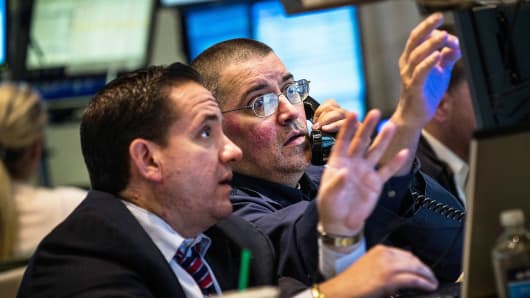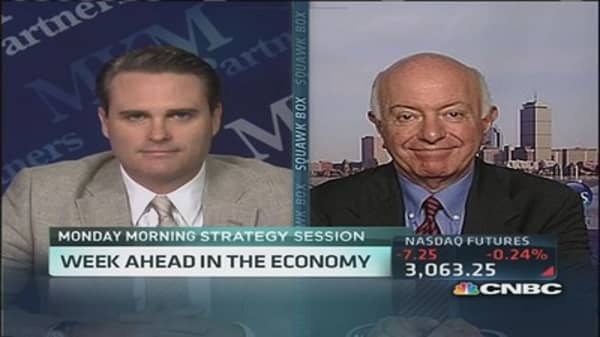Levkovich has a 1,615 target on the S&P 500 for the full year—4 percent below the current level—though he subscribes to a long-term "raging bull" thesis for stocks.
He offers a few warnings about the current pattern of tea-leaf reading:
(Read more: Small caps pose the latest threat to market rally)
On positive statements from CEOs after earnings releases:
Excessive CEO assurance usually has not been a consistent stock market indicator. The Conference Board's CEO Confidence Index can be instructive, but it does not provide a predictable pattern, in that exuberance can be associated with weak stock price trends and a lack of confidence has a mixed record on buy or sell signals. Current readings suggest modestly better-than-average feelings, which may reflect a more upbeat US economic outlook offset by concerns abroad. Nonetheless, it is not arguing that people need to lean into stocks right now especially with the potential for a 2H13 correction.
Consumer confidence can be a misleading guide as well:
Some investors think consumer confidence drives consumer spending even as personal consumption expenditures are well above 2007 levels and confidence readings are still below the historical average. Accordingly, one must look at confidence indices with a touch of trepidation as the assumed relationships can be misleading. Specifically, more jobs and improved confidence do not offset the high valuations seen in the Consumer Discretionary sector where an underweight posture is appropriate, in our view.
Finally, he cautioned that the dismissal of important macro factors, including the unwinding of ultra-easy monetary policy, indicates the "rally has gone too far."
Of course, this rally had made fools of a lot of people looking for a steeper pullback than the 7.5 percent drop from late May to late June.
But the warning signs remain.
Investors should be concerned that the recent equities run might be reversed and gains digested as it seems as if the rally has gone too far for the time being, especially with likely Fed tapering in September, probable cuts to 4Q13 and 2014 EPS estimates on the horizon and still sluggish international economies. In our minds, some caution is appropriate.
_ By CNBC's Jeff Cox. Follow him @JeffCoxCNBCcom on Twitter.





